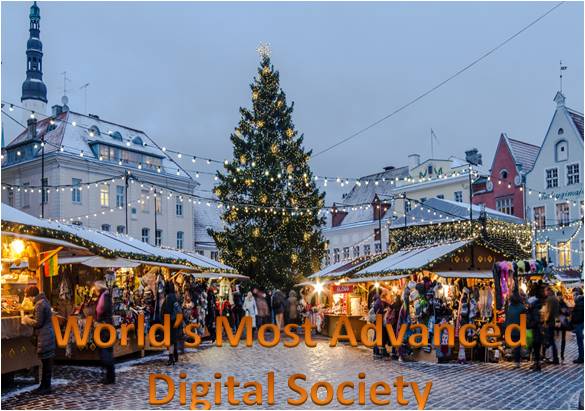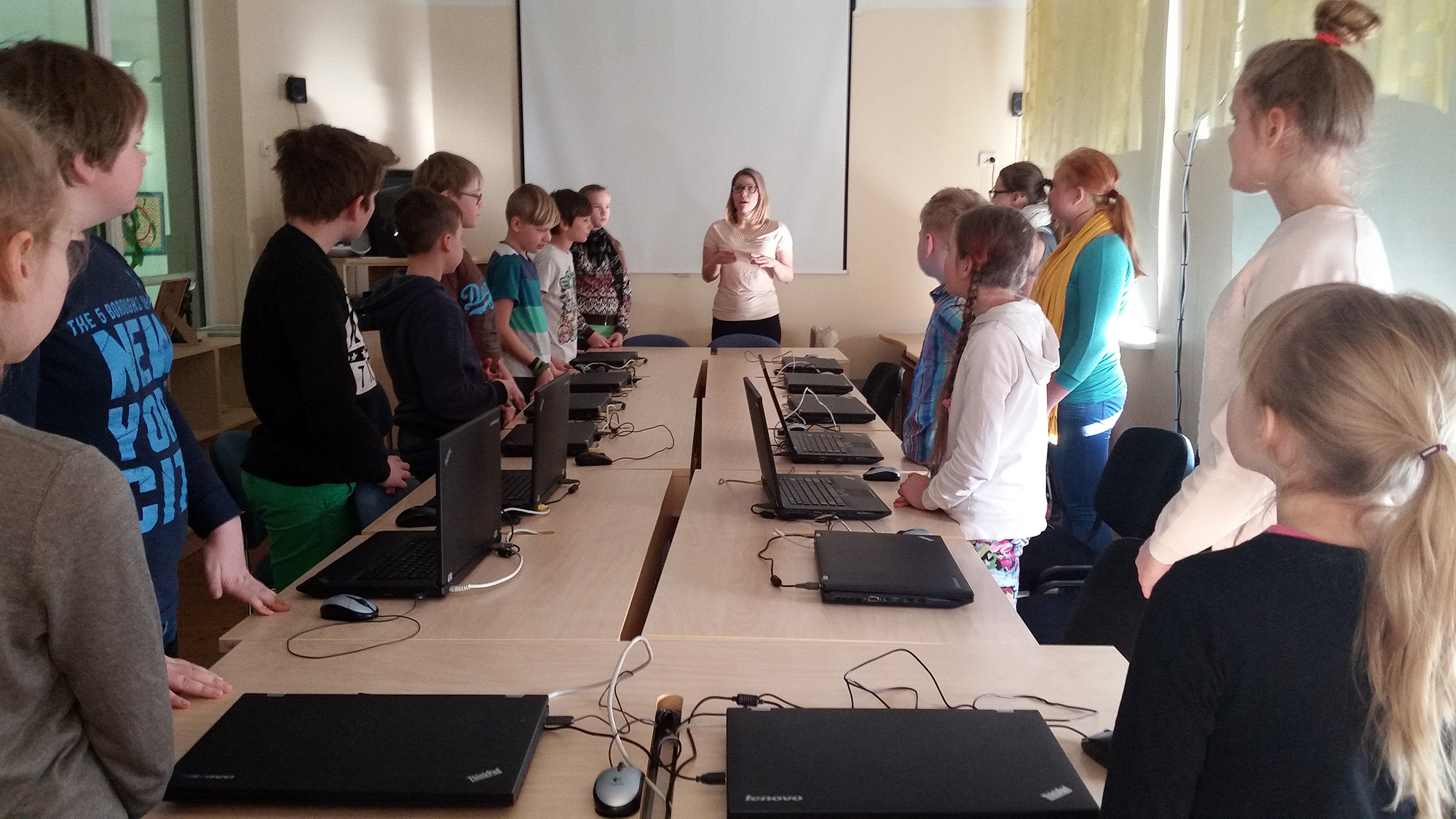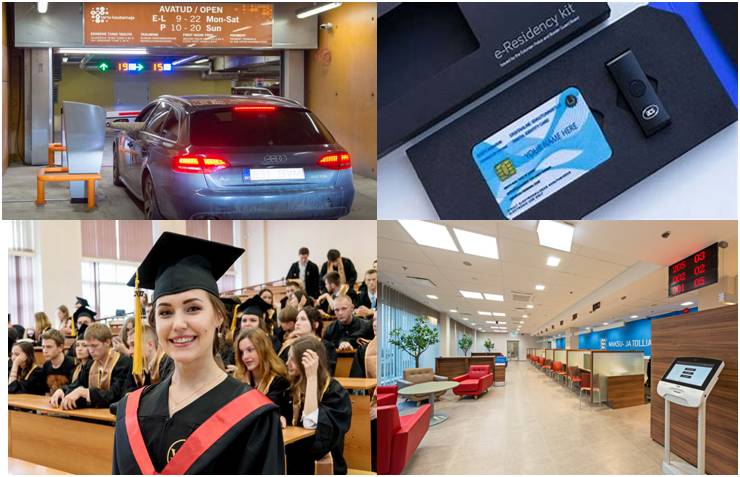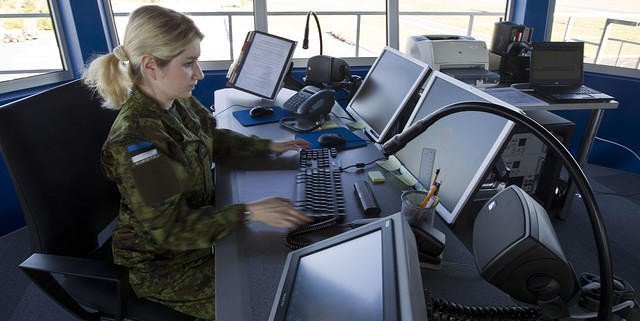' Estonia - The World's First Digital Nation '
Aug 2020
e-Estonia is a first digital nation in the World. Estonians are global digital leaders, who have built an efficient, secure and transparent ecosystem. Infact, Estonia is the only country in the World where 99% of the public services are available online 24x7. Internet access is considered one of the basic human rights as per their constitution.
Since 90's Estonia has put all its resources for digital transformation. Estonia is the birthplace of top tech start-ups namely - Skype, Taxify, Veriff, TransferWise, Scoro, Yanu et.al.
About Geography of Estonia
Estonia is a country on the eastern coast of the Baltic Sea in Northern Europe. Its population is 1.3 Million. Estonian is the official language of Estonia. Also people speak various other languages like Hungarian, Finnish, Mordvin, Russian, German, English.
Education
The education system of Estonia is divided into 4 hierarchical phases including pre-primary, basic, secondary and higher education. The education system is built with provision for academic or vocational schooling. Vocational education is available in wide variety of subjects.
- Basic Education : Basic schooling takes 9 years from age 7 to age 16. After successful completion of this period, pupils are awarded a Basic School Leaving Certificate or Pohikool loputunnistus.
- Secondary Education : Secondary schooling is of 3 years that provides opportunities in two different streams that is
* General Academic Education - Successful learners receive certificate called gumnaasiumi loputunnistus.
* Vocational Education - Successful learners receive certificate called tunnistus pohihariduse baasil kutsekeskhariduse omandamise kohta (based on basic eduction).
- Higher Education : Higher education in Estonia is spread across 3 levels, namely bachelors, masters and doctoral studies. Universities enjoy a fair degree of autonomy, with rights to establish their curricula and admission requirements.
The oldest, largest and highest-ranked university is the University of Tartu that was established by the Swedish King Gustav II Adolf in 1632. It has an extensive range of faculties, and its students enjoy exchange opportunities with many other fine universities around the world.
According to OECD's PISA results, Estonian basic education is the best in Europe and in the top 3 globally. The skills of their pupils in science, maths and reading are surpassed only by Singapore and Japan.
Digitization Journey
Estonia started their digital journey since 1994, when they established first draft of "Principles of Estonian Information Policy".
In 1996, they started e-banking services. Since then they converted many services and systems in to digital mode. Today, around 99% of public services are available to people of Estonia as E-services. Some of them are :
E-cabinet System
All government stakeholders use web-based software that helps them to streamline their decision making processes. This system combines with a multi-user database and scheduler that keeps relevant information organized and updated in real time, giving ministers a clear overview of each item under discussion.
With this system, government has eliminated the physical documents which is safe for the environment and saves tax payer's money. Ministers can attend meetings remotely. Decisions made at the meetings are to be e-mailed to interested parties or posted on a website even while the meeting is still going on.
E-tax
E-tax is an electronic tax filing system. Every year around 98% of all tax declarations are filed electronically. Tax filing is a 3 to 5 minutes process and submitted by one click.
E-residency
Electronic-residency is a government-issued digital identity and status that provides access to Estonia's transparent digital business environment. It allows digital entrepreneurs to manage business from anywhere.
Business registration process is simple and easy. As a result Estonia is one of the countries with most start-ups launched per capita than anywhere else in Europe. Digital signatures are being used by the people of Estonia. By using this system, over 844 years of working time is annually saved by the businesses.
M-parking
Mobile parking system facilitates the drivers to use public and private parking and pay for parking using mobile phones. 90% of paid parking is done by using this system.
I-voting
Estonia started I-voting system in 2005. This system helps to engage people in the governance process. By using this system, citizens of Estonia cast their ballots from any internet connected computer anywhere in the World. I-voting system saves over 11000 working days per election.
E-health
Electronic health is a nationwide system that manages 1.8 million queries of patients every month. Patient's data is registered by using an electronic ID. Doctor and patients both can access their data. It is a powerful tool for doctors that allow them to access a patient's records easily from a single electronic file. Doctors can read, test results as they are entered, including image files such as X-rays even from remote hospitals.
Technology Platform Base
X-road is a platform of Estonia's E-governance that connects individual databases and ensures privacy & security. One can access information such as education details or documents, business establishment, government process, medical information etc. by digital ID-card that is issued to every Estonian citizen. In addition, X-road platform ensures data integrity along with privacy. The system is built with (PKI) Public Key Infrastructure system including blockchain technology.
2019-2021 Plans
Country is now investing in AI (artificial Intelligence) . The objective of the strategy is to fully harness the potential of artificial intelligence by developing and implementing policy measures in the following areas:
- Encouraging the use and development of AI applications in both the public and private sector.
- Providing direct support to research in AI and increasing the relevant skills and competences to do so.
- Developing a legal environment to facilitate the uptake of AI.
- Apply AI driven, predictive analytics to decide where to send police for traffic regulation.
- The Estonian Unemployment Insurance Fund's usage of matching job seekers with open positions and further developing the current job seeker profiling algorithm using AI.
Overall aim is to lift the quality of Estonian citizens' life by moving towards fully digital mode. According to e-Estonia future plan part2, that focuses on six pillars - Legislation, privacy, international cooperation, democracy, technology and cyber security. This will help them to offer proactive services and government-as-a-platform.
Source: https://estonia.ee, www.scholaro.com, e-estonia.com
Also Read : 'CASH IS KING...........'
Share This:




